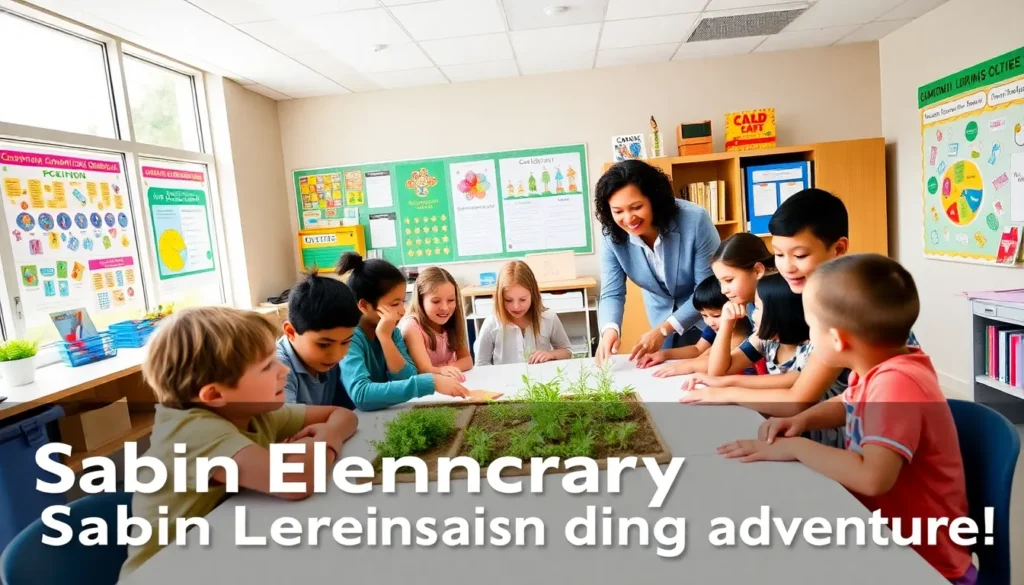When it comes to raising a child with special needs, it can feel like navigating through a maze built by a mischievous architect. Just when you think you’ve found the exit, you’re faced with another twist or turn. But, understanding and supporting children with special needs leads to empowerment, growth, and joy for both the child and the family. Let’s jump into this journey, where love, patience, and knowledge illuminate the path ahead.
Table of Contents
ToggleUnderstanding Special Needs

To effectively support kids with special needs, one must first grasp what special needs truly entail. This term encompasses a wide range of physical, mental, emotional, and developmental conditions that can affect a child’s learning and social skills. Each child is unique, and their needs can vary significantly. For instance, some may have conditions like autism spectrum disorder, while others might face challenges due to physical disabilities. Isn’t it fascinating how diverse human experiences are? Recognizing the individuality of each child allows parents, educators, and peers to foster environments where every child can thrive.
Besides, creating an inclusive mindset is essential. Children often perceive the world around them differently. They may not always communicate in the ways expected, but they do have feelings, thoughts, and dreams. By understanding where they come from, adults can better meet their needs and support their aspirations. It lays the foundation for empathy, friendship, and growth.
Types of Special Needs
Special needs can take many forms, and understanding these variations aids in effective support. Some common categories include:
- Autism Spectrum Disorder (ASD): A range of conditions characterized by challenges with social skills, repetitive behaviors, and communication.
- Attention Deficit Hyperactivity Disorder (ADHD): Impacting focus and self-control, this condition often leads to difficulties in educational settings.
- Intellectual Disabilities: These can affect a child’s learning abilities and problem-solving skills, varying in severity.
- Physical Disabilities: Ranging from mobility limitations to chronic health conditions, these can affect a child’s participation in everyday activities.
- Emotional and Behavioral Disorders: These can stem from various life experiences, leading to challenges in regulating emotions and behaviors.
By identifying these types, caregivers can tailor their approaches, maximizing each child’s potential and helping them find their unique voice.
Challenges Faced by Kids with Special Needs
Unfortunately, kids with special needs often encounter a myriad of challenges that can impact their development and wellbeing. One significant hurdle is societal misunderstanding. Some people tend to stereotype or underestimate these children, leading to feelings of isolation.
Also, navigating education systems can be daunting. Not all schools provide the resources or trained staff necessary to address the individual needs of these children. This discrepancy can hinder their academic success and social integration.
Another challenge lies within the children themselves. They may grapple with feelings of frustration or sadness due to their struggles. Outwardly, this might manifest as tantrums or withdrawal, further complicating their relationships with peers and adults. Understanding these challenges is the first step towards effective support.
Best Practices for Supporting Kids with Special Needs
Providing support to kids with special needs is not a one-size-fits-all approach: it requires flexibility and an open mind. Here are some best practices:
Inclusive Education Strategies
One proven strategy is the integration of inclusive education. Schools that embrace inclusive practices allow children with special needs to learn alongside their peers in a mainstream classroom. Utilizing modified curriculums and differentiated instruction can help each child engage with the material on their level. This not only fosters academic achievements but also promotes social skills through interactions with classmates.
Parental Involvement and Advocacy
Parental advocacy plays a crucial role in supporting children with special needs. Active involvement in school meetings, forming connections with educators, and pushing for necessary resources ensures that children receive the support they require. This kind of collaboration between parents and educators creates a more harmonious environment for the child, showcasing the importance of building strong support networks.
Therapeutic Approaches and Resources
Numerous therapeutic approaches can further enhance the development of kids with special needs. Speech therapy, occupational therapy, and behavioral therapy are just a few methods that have made significant impacts. Tailoring these therapies to fit each child’s specific needs can yield positive outcomes.
Resources are abundant in many communities. Support groups for parents provide essential emotional and practical guidance. Also, organizations dedicated to raising awareness and advocating for rights can empower families and create lasting change. Trying out different therapies and resources helps discover what best suits the child’s needs.
Building a Supportive Community
Fostering a supportive community is paramount for the development of kids with special needs. Schools, families, and friends should encourage inclusive activities that promote understanding and kindness. Simple gestures, like organizing playdates or community events, can bridge gaps and foster friendships. The more people engage with these children, the more the community understands their strengths and challenges.
Besides, raising awareness and educating others about special needs helps to normalize these conversations, creating a culture of acceptance and support. When everyone contributes, the burden lightens, allowing kids with special needs to truly flourish.









